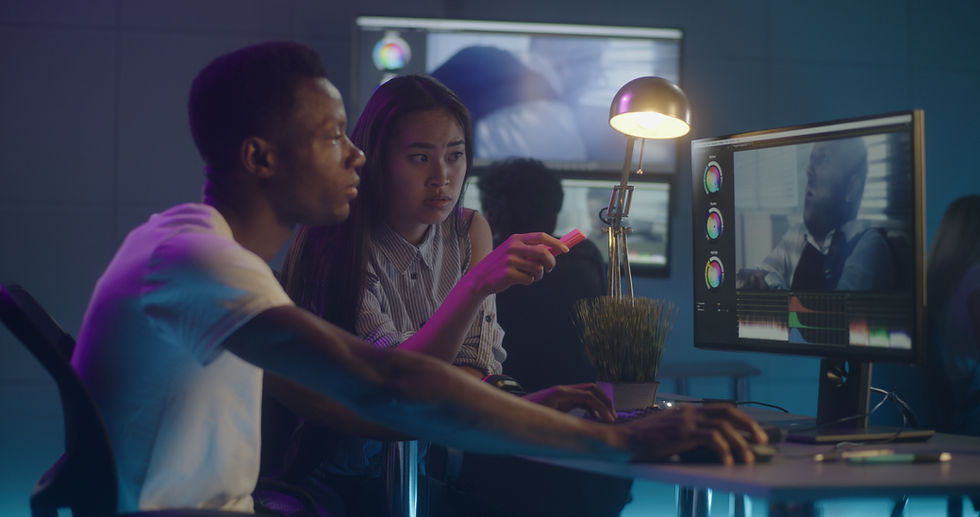Photography Tips for Beginners: Mastering the Basics
- james carson

- Feb 9, 2025
- 5 min read
Photography Tips for Beginners: Mastering the Basics
Photography is an art form that can capture moments, evoke emotions, and tell powerful stories. If you're just starting your photography journey, it can feel overwhelming with all the technical terms and different types of equipment. But don’t worry! With the right tips, you can begin taking stunning photos and gradually build your skills. Here’s a comprehensive guide to photography tips for beginners to help you get started.
1. Understand Your Camera

Before you start snapping away, get to know your camera. Whether you're using a smartphone, a digital camera, or a DSLR, understanding the basic settings is crucial. Spend time reading the manual and exploring the camera's functions, such as:
ISO: Controls the sensitivity of your camera's sensor to light. A higher ISO allows you to shoot in low light but can introduce noise (graininess).
Aperture (f-stop): Refers to the size of the lens opening that controls how much light enters. A lower f-number (e.g., f/2.8) creates a blurred background (bokeh), while a higher number (e.g., f/16) keeps more of the scene in focus.
Shutter Speed: Determines how long the camera’s shutter remains open. A fast shutter speed (e.g., 1/1000 sec) freezes motion, while a slow shutter speed (e.g., 1/30 sec) creates motion blur.
Pro Tip: Start with your camera in “Auto” mode, then gradually move to manual settings as you get more comfortable.
2. Master the Rule of Thirds

One of the fundamental principles of photography is the rule of thirds. Imagine dividing your image into a 3x3 grid. Place the subject or points of interest along these lines or at the intersections for a more balanced and visually appealing composition. This technique often results in a more dynamic photo, rather than just centering the subject.
Pro Tip: Many cameras have a grid option in the viewfinder or screen that helps you visualize the rule of thirds.
3. Use Natural Light

Lighting is one of the most important elements in photography. Natural light can make your photos look vibrant and true to life. Soft, diffused light (like on cloudy days or during the golden hour—shortly after sunrise or before sunset) is the most flattering.
Avoid harsh midday sunlight, as it can create unflattering shadows and highlights. Instead, look for shady spots or shoot during the golden hour to get that warm, soft light.
Pro Tip: If you’re indoors, position your subject near windows for the best natural light.
4. Focus on the Background

A cluttered or distracting background can take attention away from your subject. Pay attention to what’s behind your subject and try to simplify or remove distractions. If you're photographing people, look for clean, unobtrusive backgrounds that won't compete with your subject.
Pro Tip: Blurring the background (also known as achieving a shallow depth of field) by using a wider aperture (lower f-number) can help keep the focus on your subject and create a professional-looking image.
5. Experiment with Angles and Perspectives

Don't be afraid to explore different angles when composing your photo. Try shooting from a low angle or from above for a unique perspective. Get creative by incorporating reflections, shadows, and symmetry into your compositions.
Pro Tip: Sometimes, simply moving a few steps to the left or right can completely change the composition of your photo.
6. Be Patient with Your Subject

Whether you're photographing landscapes, pets, or people, patience is key. Take your time to observe your subject, adjust your settings, and wait for the right moment. This is especially important when shooting portraits or animals. Anticipate natural movements and facial expressions to capture genuine emotions.
Pro Tip: With wildlife or pets, wait for a moment when they are calm and comfortable, rather than forcing a shot.
7. Practice Different Composition Techniques

Besides the rule of thirds, there are other composition techniques that can help elevate your photos:
Leading Lines: Use natural lines, such as roads, rivers, or fences, to guide the viewer’s eye through the image.
Framing: Use elements like doorways, windows, or trees to frame your subject, creating depth and focus.
Symmetry: Symmetrical compositions can be striking and make your image appear more balanced.
Pro Tip: Try experimenting with these techniques and observe how they change the feel of your photos.
8. Understand Post-Processing

Editing your photos is an important part of the photography process. While it’s important to get things right in-camera, post-processing can help bring out the best in your images. Learn to use photo editing software like Adobe Lightroom or free alternatives like GIMP or Snapseed.
You can adjust exposure, contrast, sharpness, and color balance to enhance your photos. Don’t over-edit—sometimes subtle changes are enough to make your image pop.
Pro Tip: Don’t be afraid to experiment, but aim for a natural look. Over-saturation or heavy filters can make your images appear unrealistic.
9. Invest in Basic Equipment

If you're serious about photography, consider investing in a few essential pieces of equipment to improve your results:
Tripod: A tripod stabilizes your camera and eliminates shake, especially useful for long exposures or low-light conditions.
External Flash or Reflector: While natural light is fantastic, sometimes you need a bit of extra light. An external flash or reflector can help fill in shadows.
Lenses: If you're using a DSLR or mirrorless camera, consider getting a prime lens with a wide aperture (e.g., 50mm f/1.8) for better low-light performance and beautiful background blur.
Pro Tip: Don’t rush to buy the most expensive gear. Start with what you have, and upgrade as your skills develop.
10. Practice, Practice, Practice

The most important tip for beginners is simple: practice. The more you shoot, the better you'll become. Don’t be afraid to make mistakes—each one is a learning opportunity. Experiment with different settings, techniques, and subjects. Take your camera everywhere and document the world around you.
Pro Tip: Set aside time each week to practice your photography. The more consistent you are, the faster you’ll see improvement.
Conclusion
Photography is a skill that takes time to develop, but with dedication and practice, you’ll see remarkable progress. By understanding your camera, applying composition techniques, mastering lighting, and editing your photos thoughtfully, you'll soon be capturing stunning images. Most importantly, have fun and enjoy the creative process. Photography is all about telling stories, and you’re just beginning to tell yours!
Keep shooting, and happy snapping! 📸



Comments